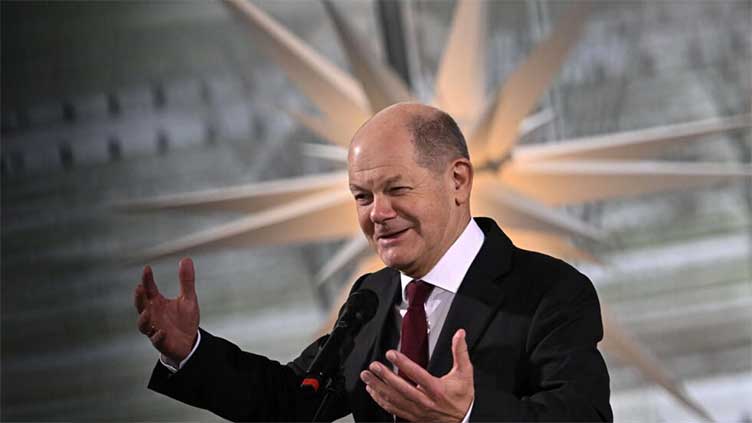German coalition reaches deal to end budget crisis

World
A court ruling blew a huge hole in spending plans, forcing government to adopt an emergency budget
BERLIN (AFP) – German Chancellor Olaf Scholz's coalition has reached a last-minute deal to end a budget deadlock, an official source said Wednesday, after a constitutional court ruling upended its spending plans and plunged it into a crisis.
"There is an agreement," the source told AFP, adding that details will be unveiled at midday at the chancellery.
In its bombshell ruling last month, Germany's top court found that the government had broken a constitutional debt rule when it transferred 60 billion euros ($65 billion) earmarked for pandemic support to a climate fund.
The ruling blew a huge hole in spending plans, forcing the government to adopt an emergency budget for 2023, and sending it scrambling for a new plan for 2024.
According to Finance Minister Christian Lindner's estimates, the coalition needs to make up a 17-billion-euro gap.
The crisis came at a time when the German economy was already struggling, and fanned fears that hefty subsidies to attract foreign investments could be cut, delaying crucial plans for the country's planned switch to carbon neutrality.
A main point of friction between the coalition parties concerns the debt brake rule, which is enshrined in German law and prevents the state from borrowing more than 0.35 percent of annual GDP to cover a structural deficit, barring exceptional circumstances.
Balanced budget obsession?
The debt rule, which came into force in 2011 under former chancellor Angela Merkel, was meant to underline Germany's commitment to fiscal prudence.
With an ageing population, the conservatives have argued that overburdening younger generations with more borrowings would be irresponsible.
Critics however view the rule as a German obsession that is halting the EU heavyweight's growth potential. At a time when Europe's biggest economy is already at risk of a recession, calls have been growing for Berlin to open its coffers wider.
The rule had been suspended since 2020 because of the coronavirus pandemic and an energy crisis triggered by Russia's war on Ukraine.
The debt brake had been due to return this year until the court ruling forced the government to temporarily halt the rule again for 2023.
Scholz's Social Democrats have called for a renewed suspension in 2024 to allow for more spending, according to a resolution adopted unanimously at its party congress on Saturday. But Lindner's liberal FDP has firmly rejected such a move.
Instead, the FDP and the opposition conservatives want reductions on welfare spending, something Scholz categorically rejected on Saturday.
Economy Minister Robert Habeck of the Greens has meanwhile said he wants "all projects that we have conceived" to go ahead.
Amid the standoff, Scholz's SPD parliamentary group admitted earlier this week that it would no longer be possible for parliament to adopt 2024's budget this year.
But Scholz and his coalition partners had set their sights on a political deal by year's end, which could then be put to parliament in early 2024.


